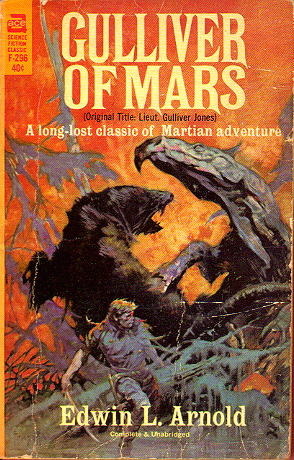Chapter VII — Gulliver of Mars
byChapter VII opens with a shift in the protagonist’s inner world as he begins to grasp the surreal rhythm of life on Mars. Though initially disoriented by the foreign customs and lighthearted spirit of the Martians, a quiet admiration grows within him. Their culture, carefree and untouched by age or death, contrasts deeply with Earth’s grave outlook. It’s not just fascination; there’s a creeping sense of loss for his former reality. But the Martians’ playful way of living gradually softens this dissonance. He’s no longer just a visitor but someone beginning to feel the emotional weight of belonging.
This adjustment is mirrored in his deepening bond with Heru, whose presence stirs emotions he thought he had left behind on Earth. Her serene beauty and quiet strength make the foreign setting feel warmer, more intimate. When he’s invited to witness a local marriage ritual, he’s amused by the randomness—partners decided by drawing lots. What should be absurd becomes enchanting, especially when Heru is involved. There’s an unspoken tension between fate and desire that makes every moment with her feel precious. Despite the surface charm, he starts to question whether their customs hide deeper meanings.
The plot thickens when the ceremony is interrupted by ambassadors from a rival kingdom, altering the celebratory mood into one of uneasy diplomacy. These envoys, cold and commanding, are not just guests—they are threats cloaked in civility. Their request for tribute seems symbolic at first, until they demand Heru, the embodiment of Martian beauty. Her selection is not just an insult but an attack on the protagonist’s growing connection. A line is crossed. The choice is no longer about tradition—it’s personal.
Fuelled by courage and perhaps recklessness, the protagonist reacts with a mix of raw emotion and instinct. Despite being outnumbered and outmatched, he confronts the alien delegation in a scene pulsing with tension and bravery. His actions may appear impulsive, but they’re rooted in a deepening sense of purpose. He’s no longer a drifting observer on this red planet. The clash is chaotic but symbolic; it shows how far he’s willing to go for something—or someone—that finally matters. Heru is not merely a Martian woman now; she is a symbol of his transformation.
After the confrontation, the protagonist becomes a figure of intrigue among the Martians. His defiance of custom stirs admiration and concern in equal measure. Martian society, while whimsical, clearly operates on rules he has now broken. The impact of his choice begins to unfold. What began as a romantic spark might now lead to unintended political consequences. Yet, his heart seems anchored. Heru remains his compass in a world that’s still very much unpredictable.
What makes this chapter rich is not just its action but its balance of internal and external conflict. The protagonist’s emotional evolution mirrors the chaos around him. He’s moved by forces larger than himself—love, honor, instinct—but also by quiet decisions that echo louder than his shouts. Even in a world of eternal youth and carefree customs, emotional gravity exists. Martians may not age, but they feel deeply. And the protagonist, though Earth-born, is starting to reflect that depth.
For readers, this chapter offers more than an alien tale—it touches on the timeless theme of confronting tradition with heart. It’s a reminder that in every culture, love can defy rules, and courage often speaks in actions rather than words. There’s also an unspoken critique of blind adherence to customs, regardless of their charm or humor. The chapter invites readers to think: What happens when someone from outside a culture is the first to question it? In this case, the answer is messy, brave, and absolutely human.
By the chapter’s end, the protagonist is forever changed—not just by the atmosphere or the customs, but by his own decisions. His growing stake in Martian life signals a narrative turning point. No longer a traveler merely observing a strange world, he becomes part of its story. Readers are left wondering what other rules he will break, and at what cost. The emotional roots he’s planting will surely shape the path ahead. As his bond with Heru deepens, so too does the complexity of the world around him.

